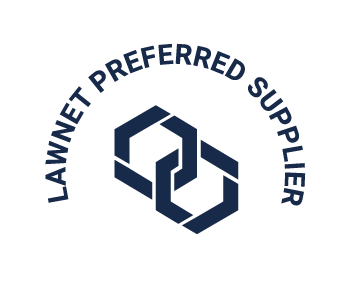The Practice Management Software (PMS) market has changed substantially in the last few years with a steady stream of acquisitions of established PMS vendors by their competitors. Law firms looking at their future PMS or Case Management Systems (CMS) strategies could be forgiven for being hesitant over their options.
The cycle of activity started in 2019 when Lexis Nexis exited the PMS market selling their “Lexis One” product to Customer Relationship Management (CRM) specialists SA.Global (now sold as “Evergreen“). Over the following 18 months, there seemed to be a never-ending merry go round of supplier purchases and announcements.
Market Changes
Practice Evolve acquired Linetime and SOS. It also announced its own product “Practice Evolve” would continue, and it was starting to work “ground up” on a new true-Cloud PMS solution targeted for release in late 2022 / 2023. Practice Evolve’s stated strategy is to continue to develop and maintain the three traditional solutions with a view to “converge” to the new cloud product at some point in the future.
Note: Practice Evolve itself is owned by the gigantic ATI Global who also own LEAP, Infotrack and Perfect Portal.
The Access Group acquired three different PMS solutions in quick succession: – Eclipse Legal (Proclaim), DPS Spitfire and Select Legal. This swiftly established The Access Group as a significant presence in the traditional mid-tier.
However, given that these competitive products are based on dated technology and tend to be used by firms with between 20 to 100 users or in larger firms as a tactical solution in a single department, it is hard to determine how these purchases deliver the strategic objective which The Access Group initially stated as seeking to bring together PMS products which are of interest to its existing ‘Top 200’ client base who make use of Its training, risk & compliance and HR solutions. The PMS solutions in question are not yet able to compete in general terms with Aderant or Thompson Reuters Elite.
Advanced Legal acquired Tikit P4W (Partner for Windows) stating it was also committed to continuing to invest in its own already established ALB product.
In common with Practice Evolve, Advanced talked at the time of a ‘convergence’ of development but also sought to differentiate the product offering by client size with ALB to be used for smaller clients and P4W for larger ones. For firms, in the middle Advanced would put both products on a head-to-head basis.
The market was understandably nervous: Advanced doesn’t have a great history of PMS product management, having bought most of the small-market competition a decade ago and summarily ‘end of life-d’ their products, only to have to reverse that policy.
During this period, we have also seen Peppermint quietly depart from the mid-market ‘full featured’ PMS market, retrenching to its core Dynamics CRM functionality and seeking to integrate with other best of breed solutions for Accounting and DMS functionality and targeting “Big Law” firms.
Lastly, we are seeing some very old, traditional solution vendors such as TimeSlice and Civia (who also purchased Norwel) who in recent years have not been so active in terms of new business starting to re-invent in their products and looking to reengage with the market.

The impact
Given this significant amount of consolidation, there are scenarios where firms have left a vendor for another, only to find themselves back in the fold of the vendor they were previously dissatisfied with.
In the traditional “mid-firm market” we are now in a situation where three vendors own seven of the leading solutions.
- Access Group – DPS, Eclipse & Select Legal
- Advanced Legal – ALB & P4W
- Practice Evolve – Linetime, Practice Evolve & SOS
In the short-term, this is extremely unsettling and confusing for the current client base and those needing to change their PMS solution.
However, one of the hoped-for positives of all this change is that in the medium to long-term there should be the opportunity for a more competitive market as vendors take the opportunity to target firms who previously would not consider their products.
The theory from the new “big three” aggregators is that the scale of their business should enable them the resources to improve their collection of products.
Micro Law (1 – 50 users)
For the smaller law firms the cloud-based commodity solutions provide an attractive option, equally some of the vendors also offer uncustomed or hosted versions of their products for this space.
Small Law (50 – 100 users)
Firms with between 50 and 100 users can also benefit from the “commodity” solutions targeted at the start-up and micro law firms. However, at this level, the cost per user per month can become costly and many question the lack of functionality, especially around reporting.
Mid Law
Firms with 100 – 200 users face the most challenging time. They are too complex for the “commodity” products and are more likely to be concerned about the challenges of data ownership, required customisations/integrations and reporting needs.
Traditionally firms would list requirements, compare that with features and undertake due diligence on the owner-manager business. Often final decisions would come down to personal relationships and personal trust in the business owners to deliver their commitments. Law firms liked dealing with owner-managed technology businesses who were in many ways like themselves.
These firms are now faced with a market where large investor-owned vendors are selling similar, competitive products with no clarity on which solution will become their main platform or what will still be around in five to ten years. The selection is therefore, becoming more linked to the long-term strategy of the vendor and confidence in their ability to deliver it rather than the product itself.
It is fair to say that due to the unique niche nature of the products the resources of PMS vendors have historically been limited and vendors have struggled to be innovative.
The “aggregators” mentioned earlier state that the scale of their business and “cross fertilisation” of specialist teams will enable greater investment and development than the purchased firms could achieve on their own.
There is undoubtedly some truth in this. However, those purchased products have unique, and often undocumented data structures and programming. They will therefore require unique development and support services and ultimately this can only go one way – the convergence of products. Where a vendor has multiple products, the question then becomes which horse will they back?
Large Law and Big Law
These firms probably have the easiest choice, in simple terms they can determine a “Best of breed” strategy and follow the market in choosing one of the two leading “Accounting only” PMS solutions (Aderant or TR Elite) and challenge that decision by including the aggregator vendor they feel has the strongest strategy.
Summary
We have perhaps, in a way been spoilt by stability in the PMS vendor marketplace with the same names having been around for years (which may not be such a good thing). It very well may be, that we are going through a well-needed Schumpeterian Gale of change, whilst that may give us a better future it does not make decision-making in the short to mid-term any easier.
It does feel harder to negotiate the marketplace at the moment, whilst there are still a lot of products, conversations are more around the ownership and strategy of those owners rather than the product set. There are also a lot of nervous users of those products uncertain of the future and lacking the confidence to invest in further implementation.
It seems like most firms are unhappy with their PMS vendor for one reason or another. If this is the case for your firm, I would recommend you engage with them to “mediate” your differences and see if you can turn the system/service around. This is particularly the case if you are currently using one of the products provided by one of the aggregators and you should be engaging with them on a strategic business level to assess their long-term viability and strategy.
Should you be in the position you must change your PMS then do not be surprised if your decision comes down to future strategy rather than the current product. It is essential you go to the market to undertake due diligence that answers your own set of circumstances, needs, wants, ambitions and aspirations.

David Baskerville
01908 592 572
Latest Articles
Baskerville Drummond in elite Band 1 of Chambers new guide
Baskerville Drummond is delighted to announced that it has been given a Band 1 rating in Chambers and Partners’ new LawTech Consulting guide. In common with all Chambers’ guides and directories, this is an independent evaluation of market players, with research...
Why does an Email address matter?
“First impressions count” is an old, somewhat superficial saying which nevertheless portrays a simple yet powerful message. It is human nature to make snap decisions or form impressions of someone or something with minimal information but based on often subconscious...
Chat GPT
Over the last few months, it has been impossible to avoid the explosion of “AI” news with a plethora of new developments and products being discussed on mainstream news, in the legal press, LinkedIn and networking events. Huge and exciting strides are being made in...
Talk to us today
Get In Touch








